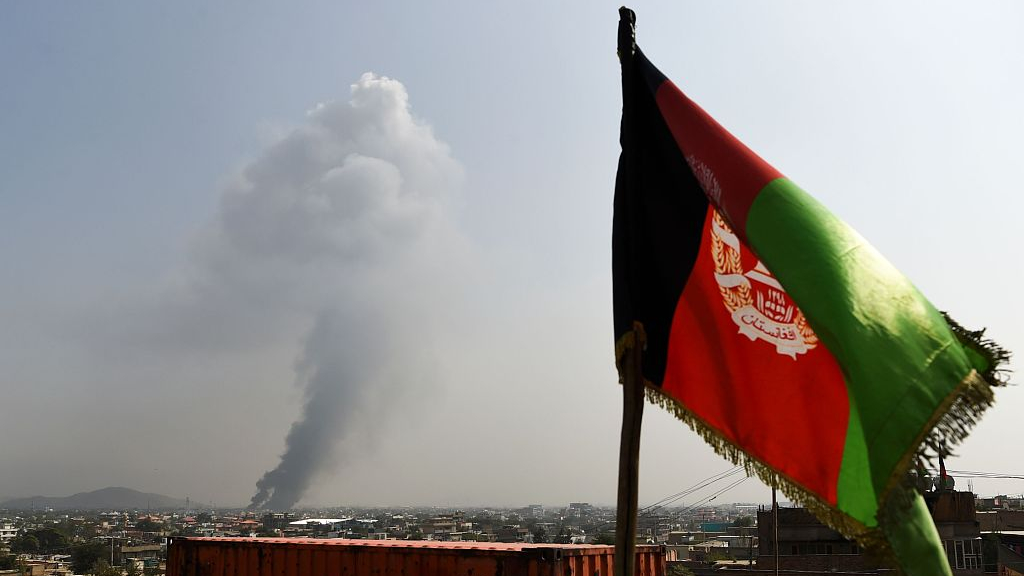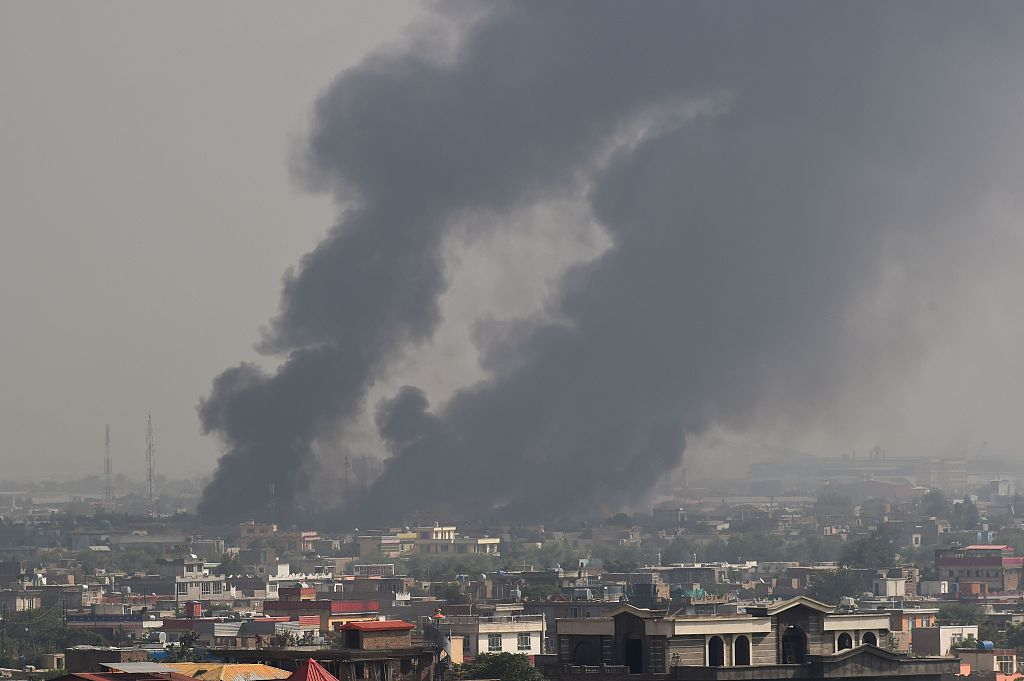

Editor's Note: Tom Fowdy is a British political and international relations analyst and a graduate of Durham and Oxford universities. He writes on topics pertaining to China, the DPRK, Britain and the United States. The article reflects the author's opinions and not necessarily the views of CGTN.
On Saturday night U.S. President Donald Trump announced that he was canceling peace talks with the Afghanistan insurgency group the Taliban following a terrorist attack in Kabul which led to the death of an American soldier.
The president had aimed to broker a settlement and ceasefire with the organization in the bid to wind down a conflict that has plagued the Central Asian country since a NATO-led coalition overthrew its rule in 2001 as part of the War on Terror.
Over the near 20 years since, allied forces have failed to eradicate the organization's presence in the country. The Taliban refuses to recognize the local Afghanistan government, which it deems to be a puppet of America.
The ordeal has subsequently taken the lives of thousands of American troops, as well as that of supporting countries, cost billions of dollars and shows absolutely no sign of coming to an end.
Given this, one must question whether Trump can "win" in Afghanistan. The president, spurred by his "America First" agenda, would very much like to try and secure peace so that he can pursue his foreign policy priorities elsewhere.
As unrealistic as this is, he is pressed by many in the American political system who see such an effort as a strategic abandonment of the country, doomed to be violated by the Taliban who will inevitably retake power.
Attempts to force them to concede will also not work. In this light, it will continue to be Washington's quagmire for the foreseeable future.
Why is the United States in Afghanistan? The reality of Afghanistan's desolation might be attributed to the fact that it has been a never-ending center of insurgency, war and geopolitical ambition.
Nicknamed "The Graveyard of Empires," the region has experienced a lot. The United States has contributed thoroughly to its demise as a nation, with Washington having invested heavily in its support of insurgent movements in the 1980s to defeat the influence of the Soviet Union and the Afghan socialist state.

Smoke rises from the site of an attack after a massive explosion near the Green Village in Kabul, Afghanistan, September 3, 2019. /VCG Photo
In the long run, it was a move which backfired in its empowerment of extremism and the subsequent rise of Taliban rule, who were then linked by Washington to the September 11 attacks thus leading to the invasion of the country by a NATO coalition.
Since that time, the United States has persistently lingered in Afghanistan in the bid to support its government and to try and uphold stability. The Taliban, however, has been resilient against the foreign presence, thriving on the country's poor governance structures and desolate economy to sustain influence.
This has created a perpetual game of cat and mouse which has produced a never-ending trajectory of casualties and attacks, but no results to show for it. It has become a headache and conundrum for American foreign policymakers.
Trump, not surprisingly, feels different. Under his "America First" mantra, he has opposed the deployment of American troops for causes that do not contribute to the direct gain of the United States.
He criticized operations and occupations as "expensive" and has attempted to end U.S.-led conflicts in given regions by brokering peace deals. Afghanistan is one of these locations. Trump does not see the country as strategically important, but a distraction.
However, as with all his proposals to withdraw U.S. troops or rescale operations, the president persistently faces resistance from the scale of the American system, more influenced by Neoconservatives, who argue that withdrawals or peace deals constitute a form of appeasement – in this case to the Taliban.
Its clout is strong here, as despite all of Trump's attempts to broker a negotiation in the process, the group continued to wage war and attacks against the Afghan state and American troops. Critics point out that even if such a deal could be reached, the Taliban is unlikely to respect it and, in turn, the country will fall to their rule again.
The question is what can be done? If Trump aims to pressure or force the group to capitulate, he is wrong. To try and do so would only be a bigger distraction to U.S. foreign policy and resources.
In this case, it becomes a lose-lose situation for the United States: not only after 20 years does it seem less plausible than ever to defeat the Taliban, but certainly peace seems far-fetched and idealistic at best. As a result, this country has truly become America's quagmire; for the foreseeable future, there is no way out.
(If you want to contribute and have specific expertise, please contact us at opinions@cgtn.com.)

Copyright © 2018 CGTN. Beijing ICP prepared NO.16065310-3
Copyright © 2018 CGTN. Beijing ICP prepared NO.16065310-3